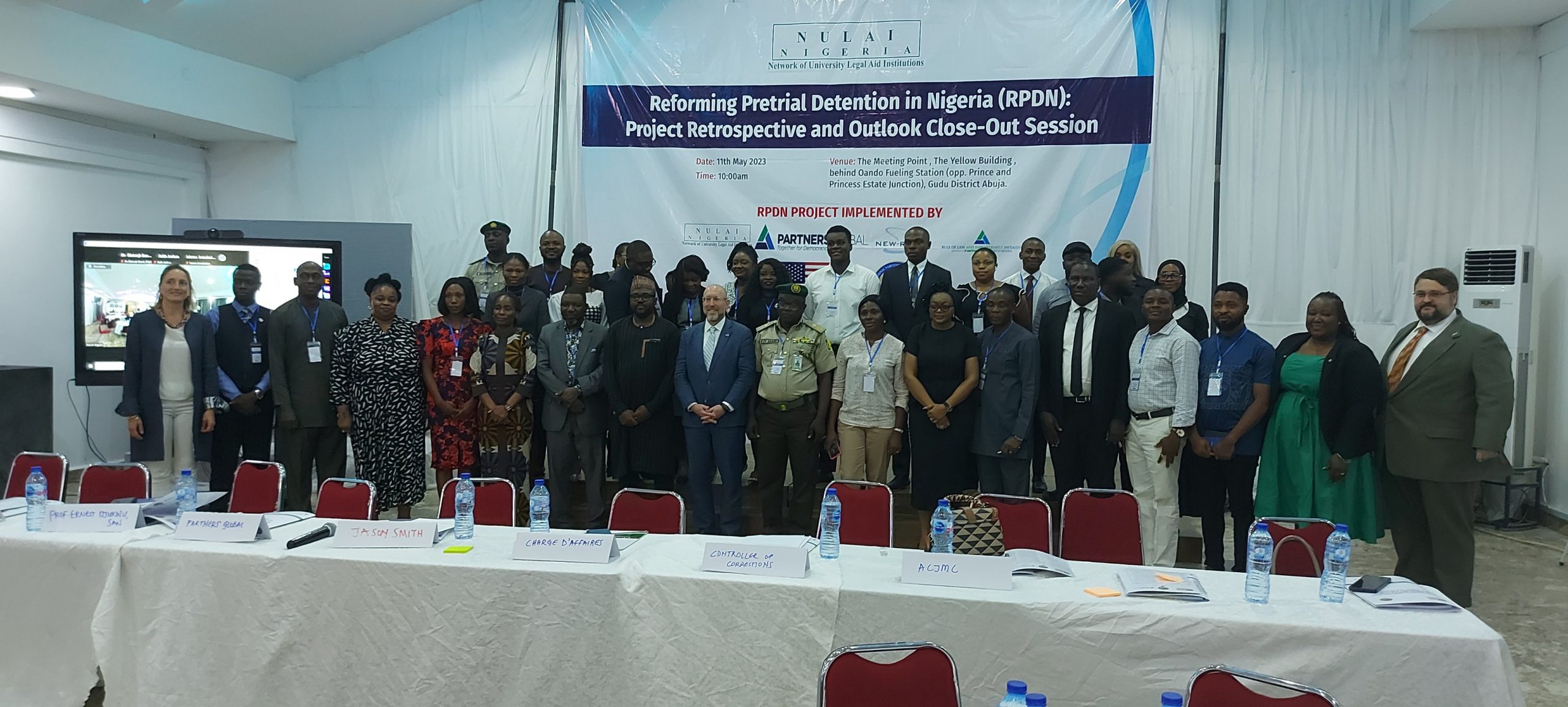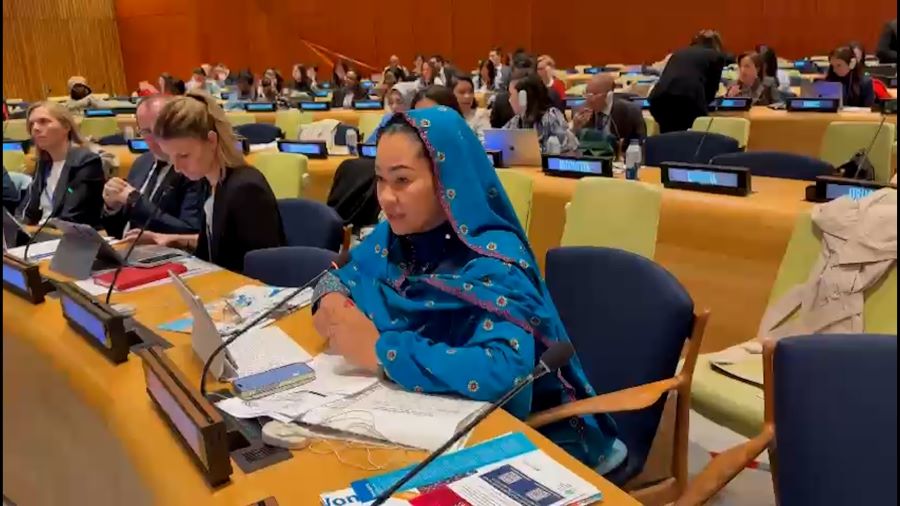The Network of University Legal Aid Institutions has indicated that its project of the Reforming Pre-trial in Nigeria (RPDN) has successfully resolved over 1400 cases of pre-trial detainees in the five years span of the Project in Nigeria.
Out of about 70000 inmates in detention in Nigeria correctional services across the States about 63000 are Pre-trial detainees which constitutes a high percentage of Pre-trial detainees that impacts negatively on prison congestion
Speaking on Thursday at the official close-out event of the Reforming Pretrial in Nigeria (RPDN) Project implemented over the last five years (2018 – 2023), the President of NULAI, Prof. Ernest Ojukwu (SAN), said

said that the project started in 2018 and had been impactful.
The event was organised by NULAI with the support of United States Department of State International Narcotics and Law Enforcement and Partners Global.
Ojukwu who was represented by Executive Director NULAI, Dr Mukhtar Nasiru said,
“There is no iota of doubt this is the most impactful project NULAI has ever been involved in.
“This is certain because the reports are showing some amazing statistics of impacts that have been made on different fronts.”
He said “Over 1,400 cases have been resolved; over 500 students have been able to support pro bono lawyers to intervene in cases and these cases have been resolved.
“Over 15, 000 pretrial detention cases are being updated , the records are updated in the correctional centres, that is to show you that the use of technology has helped to solve a lot of systemic problems that are affecting the criminal justice system.”
Ojukwu, however, said that there has been a lot of problems of pretrial detention in the country which has resulted into overcrowding in the correctional centres.
“The figure in Nigeria is 75 per cent and it has been consistent. What I mean by 75 per cent is that of every 100 people in the correctional center, 75 per cent of them are pretrial detainees.
“This means that their cases have not been decided. They have not been convicted. Only 25 per cent have been convicted.
“We have been able to reduce significantly all the problems that make cases to be adjourned.”
He said that with the effort by the CSO, the period of adjournment has been reduced from 31 days to 14 days.
Also speaking, David Greene, Charge’ d’ Affaires, U.S. Embassy, Nigeria, said that Nigeria was not alone in facing the challenge of pretrial detention.
“It is universal. The fundamental principle of any democratic society like Nigeria is not just the rule of law, but there must be a functioning justice system,” he said.
He said that the project was implemented in the FCT and Keffi adding that the U.S. would replicate this role to include additional states in north central region.
Similarly, NULAI’s Programme Manager, Mahmud Yusuf said that the organisation had been working with the Nigeria Correctional Services (NCS) to achieve its goal.
He said: “With a little over 70,000 detainees in detention in correctional centres across states, 63,000 are pretrial detainees which constitute a high percentage of pretrial detainees.
“The problem with pretrial detention is a system wide problem not just from the correctional centres but from the point of entry, you look at what are the courts doing, what are the prosecuting agencies doing.
“And then the resulting effect is the congestion and then the resultant pretrial situation we have across the country.”
He said that the way out was to look at the structures in place to address pretrial detention.
For Controller-General Nigerian Correctional Service (NCS),.Haliru Nababa, appreciated NULAI’S effort at
reducing cases of pretrial detainees in the country.
Nababa was represented by Controller, Custodial, Adamu Yahaya.
He said that the major challenge in the custodial centres was overcrowding of the facilities.
“NULAI has supported the service in addressing the issue of overcrowding of inmates awaiting trial in custodial centres,” he said.
On her part, Deborah Mancini, Director, Africa PartnersGlobal said the het organisation had been discussing issues relating to pretrial detention in Nigeria.
“We realise that Nigeria had gone through a very progressive legal reform process where they have put in place the Administration of Criminal Justice Act.
“The Act gave a lot of opportunity to ensure that pretrial detention cases were handled more effectively in the courts.”(




